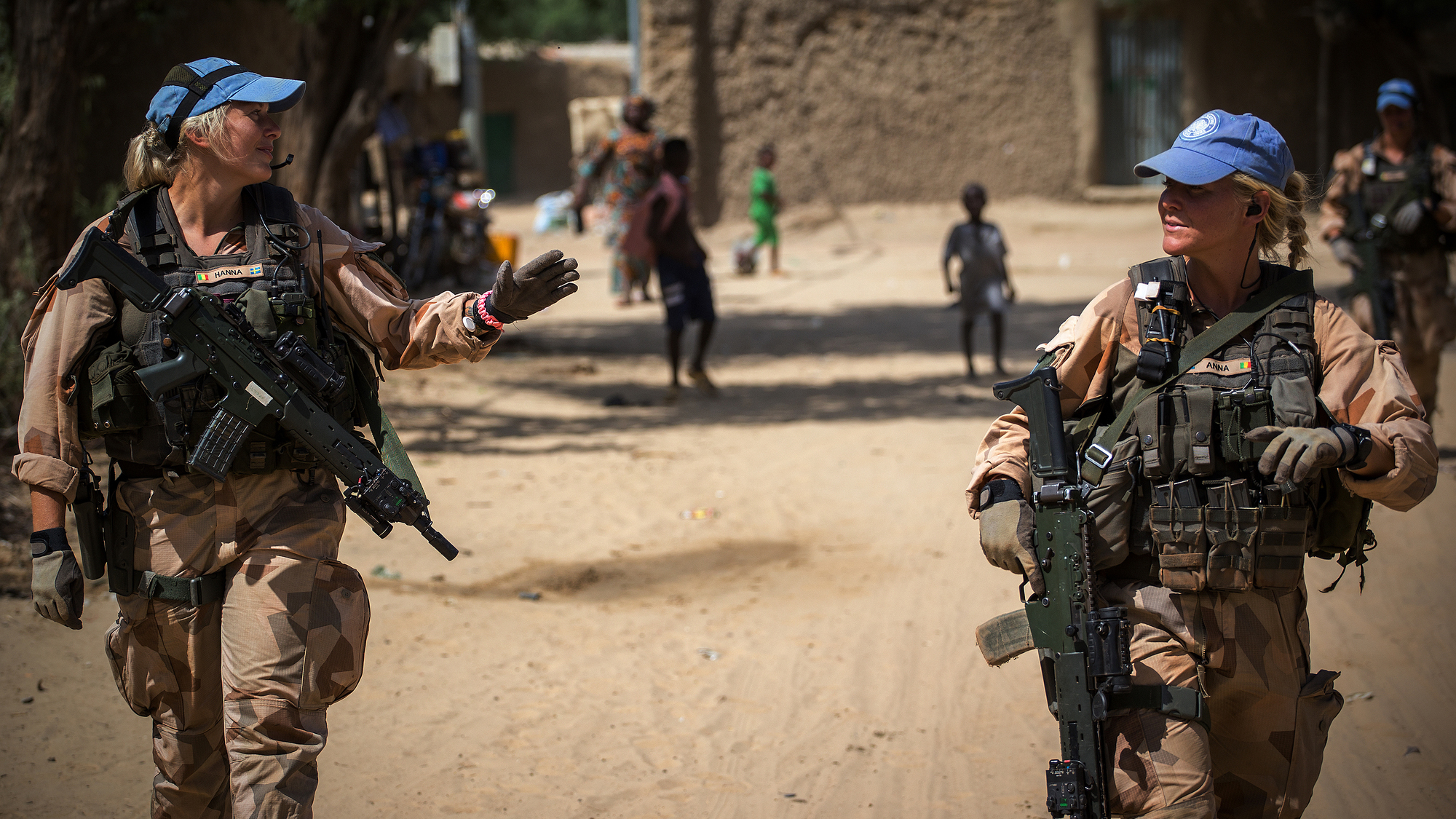Find out more in
A photographer's account of the Ukraine war
Loss and compassion in Ukraine: from the front lines to evacuation routes, Ximena Borrazás, a UN staff member with the Ukraine Humanitarian Coordinator’s Office (OCHA), has been documenting the human cost of Russia’s war against Ukraine — and the quiet dignity of those who endure it.
28 January 2026 marks the first International Day of Peaceful Coexistence. Peace means more than the absence of conflict — it means building societies where diversity thrives, rights are protected, and justice is shared by all. As conflicts intensify worldwide, the international day highlights the power of education, dialogue, and cultural understanding to counter fear and division, while reaffirming the international community’s commitment to the enduring values and principles of the United Nations.
Fleeing Sudan’s brutal civil war, refugees like Nafeesa now seek fragile safety in northern Central African Republic, where UN peacekeepers and humanitarian agencies work to contain violence, ease tensions and protect communities strained by displacement.
After enlisting at 18, Cheryl Pearce battled rigid gender barriers to rise through the military ranks. Now the UN’s Acting Military Adviser for Peacekeeping Operations, the Australian-born Lieutenant General is the highest ranking woman in uniform within the United Nations.
“Peace for me, is seeing communities having food security, having water security, education, knowing, you know, as a mum myself, knowing that my children can grow up to feel like that. They can have a life and a future and fulfill their dreams and goals.”
Lieutenant General Pearce knows what it takes to serve in some of the most difficult places on earth, from East Timor to Afghanistan. In this episode, she reflects on the sources of her mental and physical resilience, on making a robust case for peacekeeping in an age of disinformation, and shares why her family wants her to show her chaotic side once in a while.
“I don't believe in a world without peacekeeping. I truly believe in what we do and that we do make a difference. There is so much good about who we are and what we do.”
Photo: ©CMDR Kylie Robson
Thousands of Haitians have been displaced by recent clashes. Most of them sought refuge with host families, while others have settled in two displacement sites. The escalating violence has significantly impacted humanitarian programmes in the area, yet more than half of the population needs humanitarian aid. Members of the Security Council hear a briefing on the latest developments by the Special Representative of the Secretary-General and Head of the United Nations Integrated Office in Haiti (BINUH). To keep informed, please visit the site “Spotlight on Haiti”.
As the catastrophic war in Sudan nears its 1,000‑day mark, its devastating toll on civilians continues to grow, with suffering deepening across affected regions. Nearly 12 million people have been forcibly displaced within the country and beyond its borders. Famine has been confirmed in 10 areas, while the economy has shrunk by more than 30 percent in just two years. Humanitarian workers are also increasingly coming under attack, even as an overstretched aid system struggles under unprecedented strain but continues to deliver lifesaving assistance.
The latest developments in the world stress the imperative of full respect, by all states, for international law, including the Charter of the United Nations, which provides the foundation for the maintenance of international peace and security. Since the UN's creation on 24 October 1945 (the date its Charter came into force), the United Nations has often been called upon to prevent disputes from escalating into war, or to help restore peace following the outbreak of armed conflict, and to promote lasting peace in societies emerging from wars. Learn more about peace and security.
Through minimalist ceramics shaped by memory and displacement, Crimean Tatar artist Elvira Demerdzhi creates moments of calm and cultural continuity amid Kyiv’s ongoing war.
The term "unilateral coercive measures” usually refers to economic measures taken by one State to compel a change in the policy of another State. The International Day against Unilateral Coercive Measures (4 December) serves as a part of global efforts to raise awareness about the negative impact of such measures not in accordance with international law and the Charter of the United Nations. The observance emphasizes the need to promote dialogue, mutual respect, understanding, tolerance and multilateralism as the cornerstone of international relations and diplomacy.
The animated film highlights how technology can empower women and girls with disabilities while also being misused to perpetrate gender-based violence. It urges collective, intersectional action to ensure safe, inclusive digital spaces for all.
This year marks the 100th anniversary of the 1925 Geneva Protocol that prohibits the use of chemical weapons in international armed conflicts. A century ago, after witnessing the terrible impact of chemical weapons during World War I, the international community came together to ban their use in war. On the Day of Remembrance for all Victims of Chemical Warfare (30 November) we pay tribute to the victims of chemical warfare over the decades. We also remember the global efforts to end the use of these abhorrent tactics.
UNMAS leads mine action efforts in Gaza, helping humanitarian partners assess explosive ordnance risks and enabling safe operations during and after hostilities. Since 2009, and especially after the October 2023 escalation, it has expanded its work to include early recovery support and risk education for civilians across Gaza and the West Bank.
COVID-19 showed how devastating pathogens can be, even in peacetime. Yet their impact is far greater when weaponized. With rapid technological advances increasing the risk of accidental or deliberate misuse, there is no margin for error and no time to waste. The Global Conference on Biological Threat Reduction (Geneva, 28-30 October) brings together top minds in health-security, emerging technologies, and biothreat policy, to explore new strategies, challenges and innovations in combating biological threats to our interconnected ecosystems.
As hospitals lie in ruins and hunger spreads in Gaza, UNFPA’s mobile clinic offers critical maternal care to women giving birth in unimaginable conditions.











